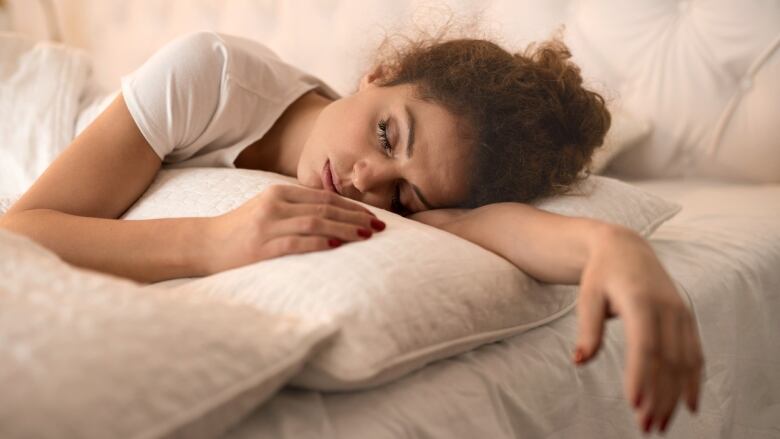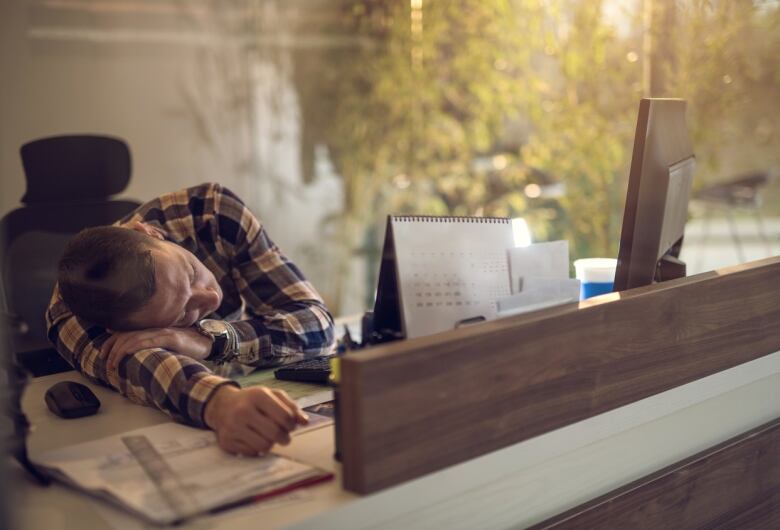We asked sleep experts how to have the perfect nap

With sleep-friendly policies now the norm at innovative companies like Google and Facebook, andnap pods even popping up on college campuses, it's clear: napping is having a moment.
This is good news to those of us who feel our heads dropping toward keyboards around3 p.m.every day the stereotype of the lazy napper is slowly dissipating.
"The whole idea of sleep being involved in laziness is complete nonsense because it's one of the best things you can do for your brain for productivity and performance," said Richard Horner, professor of medicine and physiology at the University of Toronto. "It's one of those dying old viewpoints that has no basis."
But while some rejoice at the prospect of an at-work power nap, others struggle to doze or wake up feeling groggy and dazed. So what's the secret to perfecting the adult nap?
To find out, we asked Canada's sleep experts to unravel the mysteries of the nap.

Why do we nap?
The short answer? "People nap when they're sleepy," said Dr. Brian Murray, a neurologist and sleep specialist at Sunnybrook Health Sciences Centre and an associate professor at theUniversity of Toronto. "The longer you stay awake the more you want to sleep."
The longer answer is more complex. Most healthy adult humans need between seven to nine hours of sleep a night, Murray explained. When they're deprived of those hours, perhaps because they were up late working or taking care of a child, the body wants to make up for lost hours during the day, he said. Hence, the nap.
There is also the matter of the circadian rhythm, the body's 24-hour biological clock that influences when we sleep. Aligning with the circadian rhythm, the body temperature dips in the evening, signalling to the body that it's time to sleep, but there's also a miniature drop in the afternoon, typically between1 p.m. to 4 p.m.said Dr. Judith Davidson, an associate professor of psychology at Queen's University who specialized in the study of sleep and sleep disorders. It's during that afternoon dip in temperature that people may feel sluggish, like they need a nap, she said.
Is napping good or bad?
It depends. "Sleep in the day isn't as good as sleep at night, but it's better than nothing," said Murray. Evolution has dictated that humans function best with a full night's sleep, optimizing their ability to perform activities during the day and leaving the evening as a time to rest, he said.
The brain also needs enough sleep, and enough appropriately timed sleep at night, for it to go through its normal sequence of sleep cycles in order to do the job of work that the brain undergoes in sleep, such as the sorting and processing of waking experiences to rewire brains for optimal function, said Horner. One full cycle of sleep lasts around 90 to 110 minutes.
But even if you've had a full night's sleep, you might still be tempted to doze off during daytime.
"A nap here and there is perfectly normal," said Horner. "(But) if you need a nap every day, you've got to wonder what you do at night."
While some people might just be up too late on Facebook, others might be experiencing symptoms of a sleep disorder, such as sleep apnea or insomnia, he said. People with insomnia should not nap during the day, as sleep can become "lighter" in subsequent sleep at night, potentially worsening insomnia, he said.

When is the best time to nap? For how long?
Napping is best done between the hours of1 p.m. to 4 p.m., when the body naturally wants to sleep, said Davidson. Any earlier and the body might associate the nap as being similar to a sleep-in, which could throw off your circadian rhythm, she said. Any later and it might impede your ability to fall asleep in the evening.
As for how long you should sleep, a 15- to 30-minute "so-called power nap" is ideal, said Dr. Charles Morin, a professor of psychology at Laval University and Canada research chair on sleep disorders.
"If you go beyond that, what's going to happen is you may go into a deeper sleep but it's going to be much more difficult to come out of it," he said.
People who nap for longer than 30 minutes may enter the non-REM slow brain wave part of the sleep cycle, he said. Waking up during that period of deep sleep will feel something akin to "sleep drunkness," called sleep inertia, he said.
His message for reluctant nappers? The only remedy for sleepiness is sleep.
"There's nothing as powerful as taking a short nap," he said. "When you're driving caffeine, listening to a loud radio, opening the windows of your car this is not going to do it. Even a short episode of sleep is really what's going to give you back alertness."
KatrinaClarke is a Toronto-based journalist who writes about relationships, health, technologyand social trends. You can find her on Twitter at @KatrinaAClarke.












_(720p).jpg)


 OFFICIAL HD MUSIC VIDEO.jpg)
.jpg)



























































































